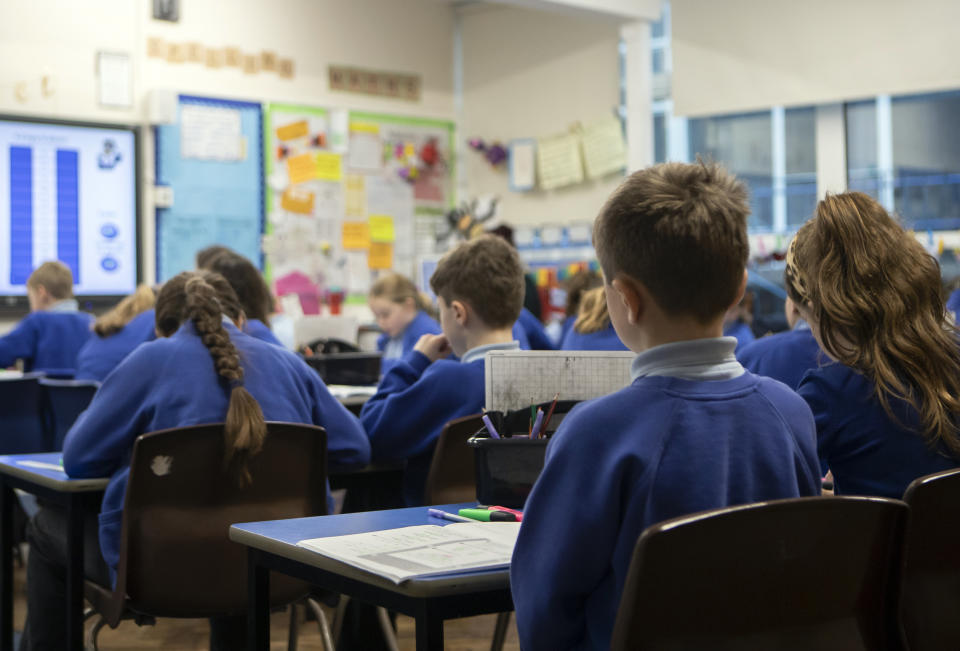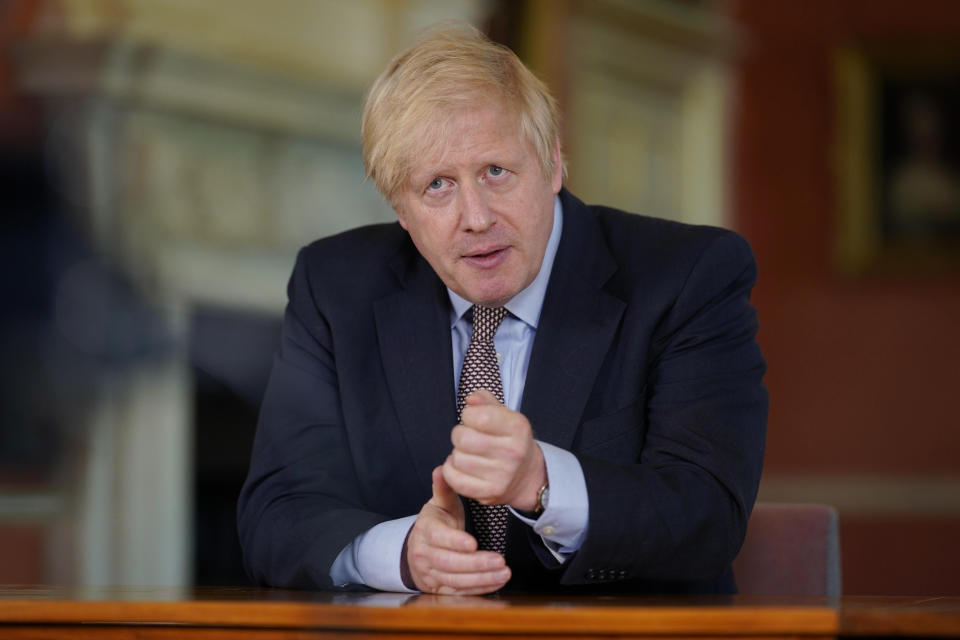Boris Johnson speech: Prime Minister announces when schools could reopen

Schools may be able to start reopening at the start of June, Boris Johnson has announced.
Laying out his plans for the easing of the coronavirus lockdown in a speech on Sunday night, the Prime Minister said any change to restrictions would depend on infection rates but he hoped the government would be in a position by June 1 to start a “phased reopening” of schools.
In his speech, Johnson outlined a series of steps as part of his “road map for reopening society”.
“In step two – at the earliest by June 1 – after half term – we believe we may be in a position to begin the phased reopening of shops and to get primary pupils back into schools, in stages, beginning with reception, Year 1 and Year 6,” he said.
He added: “Our ambition is that secondary pupils facing exams next year will get at least some time with their teachers before the holidays.
“We will shortly be setting out detailed guidance on how to make it work in schools and shops and on transport.”
Latest coronavirus news, updates and advice
Live: Follow all the latest updates from the UK and around the world
Fact-checker: The number of COVID-19 cases in your local area
6 charts and maps that explain how coronavirus is spreading
The Prime Minister stressed that any changes to current restrictions would depend on infection rates, adding: “I must stress again that all of this is conditional, it all depends on a series of big Ifs.
“It depends on all of us – the entire country – to follow the advice, to observe social distancing, and to keep that R [the reproduction rate of the disease] down.”
But the PM’s announcement sparked criticism from teaching unions, with one branding it “reckless”.
Dr Mary Bousted, joint general secretary of the National Education Union (NEU), said: “We think that the announcement by the Government that schools may reopen from June 1 with reception and years one and six is nothing short of reckless.
“Coronavirus continues to ravage communities in the UK and the rate of Covid-19 infection is still far too great for the wider opening of our schools.”
She urged the Government to meet five tests set out by teaching unions, which includes extra money for deep cleaning and personal protective equipment (PPE) and local powers to close schools if clusters of Covid-19 infections break out in a particular area.
The NAHT, which represents leaders in the majority of schools, said the announcement was likely to lead to questions from “anxious parents”.
“The Government will need to show some understanding rather than reckless determination if it wants to pass the confidence test,” said general secretary Paul Whiteman.
“It will all be in vain if many parents still decide to keep their children at home despite the ‘all clear’ from the Government.”

Others pointed out how difficult social distancing will be within schools and said the announcement was likely to provoke confusion among teachers.
Geoff Barton, general secretary of the Association of School and College Leaders, said “social distancing is extremely difficult” with children in reception and year one.
“We are not trying to impede the reopening of schools,” he said. “Throughout the crisis we have highlighted the importance of bringing in more pupils when the time is right to do so and there is a clear plan in place to manage it safely.
“Unfortunately, we are not persuaded that either of these two simple tests has yet been met.”
Dr Patrick Roach, general secretary of the NASUWT – The Teachers’ Union, said: “Today’s announcements will do little to assuage teachers’ concerns about the premature reopening of schools.”
“The Government must, with the utmost urgency, address teachers’ concerns or expect to lose the goodwill of the profession.”
Union bosses’ views were shared by Bryony Baynes, headteacher of Kempsey Primary School, who said: “I’m slightly flabbergasted.
“I understand that we need to begin the sense of returning to normality, and I understand that a big part of returning to normal is getting the school back up and going.
“However, how on earth are we to manage social distancing between reception and year one pupils when most of them are aged four and five?”

Schools across England, Scotland and Wales have been closed since March 20 amid the coronavirus crisis.
Education Secretary Gavin Williamson has previously said that any reopening of schools would involve a “phased manner” and ruled out the prospect of them opening over the summer holidays.
Ofsted’s chief inspector Amanda Spielman previously said there is a “great deal of logic” in allowing younger children to return to school first.
She said: “We know that making normality for children is really important and, the younger the child, the more they need that simple, structured routine where they understand what's happening.
“And it's hard for them to go to school one day and then not for another two weeks. So I entirely recognise and see the logic of this.
“I also think there's a logic from the point of view of parents; the youngest children are the ones who need the greatest care and oversight.
“It's hardest for parents to work and all the other things they need to do if they're also looking after, perhaps, several younger children at the same time and trying to make sure they work through school work remotely.”

 Yahoo News
Yahoo News 

